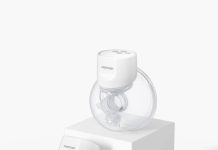What comes to your mind when you think of addiction? Images of people abusing drugs – perhaps, names of some of the most common and notorious drugs like cocaine, heroin, etc. But is that a comprehensive image?
Addiction, by definition, is a condition in which a person is unable to stop engaging in a particular behavior or consuming a certain substance. Moreover, quitting an addictive drug or activity is followed by withdrawal symptoms.
The definition above involves various behaviors and drugs, both rare and common. One such drug that people usually do not associate with addiction despite its tremendous consumption rate is caffeine!
With 75 to 80 percent of people around the globe consuming it regularly, caffeine is the most widely used drug in the world. It is present in coffee, soda, energy drinks, chocolate, and many other common foods.
Since many components of our regular diet include caffeine, it’s quite hard to pinpoint our exact daily caffeine intake and its effect on our lives. But we can start to identify the signs of caffeine addiction by first understanding what it actually is.
Table of Contents
What is Caffeine Addiction?
According to the Diagnostic and Statistical Manual of Mental Disorders (DSM-5), caffeine addiction is not a formally recognized condition yet. Rather, the symptoms induced by excessive use of caffeine come under substance dependence.
Nonetheless, one can consult facilities like Delphi health group to navigate their caffeine dependence in an organized and safe manner. Caffeine addiction or dependency is when a person consumes unhealthy and excessive amounts of caffeine over a certain period and cannot function normally without it. Like any addiction, caffeine addiction has adverse effects on a person’s health, social life, and general mood.
But caffeine isn’t all bad – in fact, it is connected with a variety of benefits for the human body. Some of its positive effects are listed below:
- Improves Mood
- Boosts Energy Levels
- Provides Relief from Headaches
- Decreases Fatigue
- Accelerates Reaction Time
Now that you know what caffeine addiction means and its general effects on the human body, the next question is how to figure out if you have become a bit too dependent on caffeine.
To answer that, let’s look at some of the signs you may exhibit if you have a caffeine addiction.
.Headaches
How often have you heard someone say that they cannot function without their morning coffee? How many times have you felt truly “woken up” right after having your first coffee sip of the day?
Millions of people worldwide start their day by consuming caffeine in one form or another. For many, it’s a rigid habit developed over time and followed religiously. A constant caffeine intake can cause headaches even if you skip it for one day.
Ironically, caffeine is also a vasoconstrictor. It restricts the blood flow through the blood vessels by making them slightly narrower, making it an effective headache reliever.
The headache you experience when you miss your daily caffeine intake is a classic withdrawal symptom and a sign that you need to restrict your caffeine intake.
.Irritability
Caffeine is a stimulant – it triggers the dopamine receptors in our brain like any other hardcore drug but to a much lower extent. Dopamine can provide an intense feeling of pleasure and reward, among other things.
Suppose you feel grumpy in the morning till you’ve had your morning coffee or miss it altogether. In that case, it’s a sign that your body is reliant on that drug to regulate your mood.
.Fatigue or Brain Fog
In addition to triggering the dopamine release, caffeine also stimulates an adrenaline release in the body. People usually take their coffee in the morning or before they have to work to help them fight fatigue and be more productive. It works wonderfully, but it can also develop caffeine dependence over time.
Suppose you rely on your daily caffeine intake to stay alert or simply get more done. You may experience brain fog or difficulty concentrating on anything or completing basic tasks without it.
.Developing Tolerance
When you consume a certain amount of a drug for the desired effect, your body becomes immune to it, and you need an additional amount of it to produce the same results. This is called tolerance.
Let’s say you take a single cup of coffee every day before work to be more productive. With time, you will realize that one cup is not enough to yield the same level of productivity, hence compelling you to increase your dosage. Developing caffeine tolerance can lead to a seemingly endless path of unhealthy caffeine intake. That is why it is of paramount importance to check your intake amount and limit it.
.Intimidated By Quitting
A very telltale sign of any addiction is if you are intimidated or even scared by the idea of quitting a certain substance or an activity.
Suppose you have the same feelings regarding your caffeine consumption. In that case, the chances are that you are heavily and unhealthily dependent on it. The good news is that caffeine dependence, although a problem, is far more manageable than some other, more harmful substances.
If you cannot quit cold turkey or simply don’t want to (after all, caffeine isn’t all bad), try cutting back on it bit by bit every day until you are consuming healthy amounts of caffeine.
The Bottomline
Considering the positive effects of caffeine, it’s no surprise that most of the world’s population consumes it regularly. It tastes good and feels good, but too much of it can overshadow its benefits and cause adverse effects on our physical, emotional, and mental health. To make sure that you stay well within the safe consumption limit, try to keep your daily caffeine intake well under 600mg. The safe limit of caffeine intake varies greatly because different people have different sensitivity levels regarding drug consumption.





